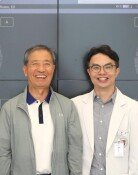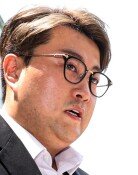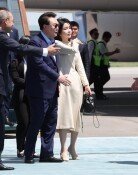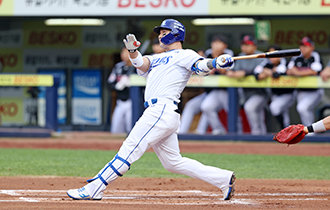Unprogressive unification
The progressive Democratic Labor Party, the minor People`s Participatory Party, and those who bolted from the New Progressive Party have agreed to form a new party. This is the Democratic Labor Party-led small-scale unification of left-leaning groups. They oppose the larger unification drive led by the main opposition Democratic Party, but open the door to fielding unified candidates for next years parliamentary and presidential elections. Based on their combined approval rating of 3-4 percent, the smaller group will try to maximize its negotiating power in the process of fielding the opposition`s unified candidates
In leading the unification negotiation, the Democratic Labor Party made no change to its pro-North Korea stance. On North Korea`s third-generation hereditary power transfer, party leader Lee Jung-hee said, No comment is my and the partys judgment. On the Norths start of the Korean War, which is a historical fact confirmed by even Russia and China, Lee said, I dont know well whether it was the North that invaded or the South. While leaders of the Democratic Labor Party blast the Lee Myung-bak administration as an anti-democratic government, the party keeps mum on North Koreas human rights abuses and totalitarian government that drives its people into hell both politically and economically. Certain members of the party were implicated in the espionage group Ilsimhoe under the former Roh Moo-hyun government and again in the anti-stage group "Wangjaesan" under the incumbent government.
While the Democratic Labor Party is sticking to its pro-North Korea stance, other political forces that joined forces with the party are changing their positions like a chameleon. Sick and tired of the labor partys pro- North stance, Roh Hoe-chan and Shim Sang-jeong bolted from the party to set up the New Progressive Party in March 2008. In the process of discussing the unification of leftist forces with the Democratic Labor Party, the two said the North`s power transfer is not understandable from the perspective of public sentiment, adding "We respect the opinion that critical positions on the power transfer are needed. Yet such comments were intended as a stop-gap measure. When the New Progressive Party ditched merging with the labor party early this year, the two defected from the former and joined hands with the latter again. They call this "progressive unification," but this is nothing more than political collusion.
The move of People`s Participatory Party leader Rhyu Shi-min, who was called the chief officer of political security of former President Roh Moo-hyun, is apparently the epitome of transformation. In 2007, Rhyu said, Objections to the Korea-the U.S. free trade agreement are impossible. Yet he has recently had a change of heart, saying, Had I been the president, I wouldnt have suggested the accord. Lee Byeong-hwan, a former presidential chief of staff who led the foundation of the Peoples Participatory Party, opposed the partys merger with the Democratic Labor Party to the end. Despite this, Rhyu surrendered to the labor party for his political revival after his defeat in the elections for Gyeonggi Province governor last year and the April 27 by-election in Gimhae, South Gyeongsang Province this year.
North Korea is an inhumane country that has cut its people off from the outside world and starved them to death. Its hereditary monarchy cannot be called 21st-century progress. Taking about progress while turning a blind eye to the Norths human rights abuses and authoritarianism and even following the communist regime are insults to the South Korean people. The Democratic Labor Party-led unification is not progressive unification but a reactionary coalition of leftist groups.







